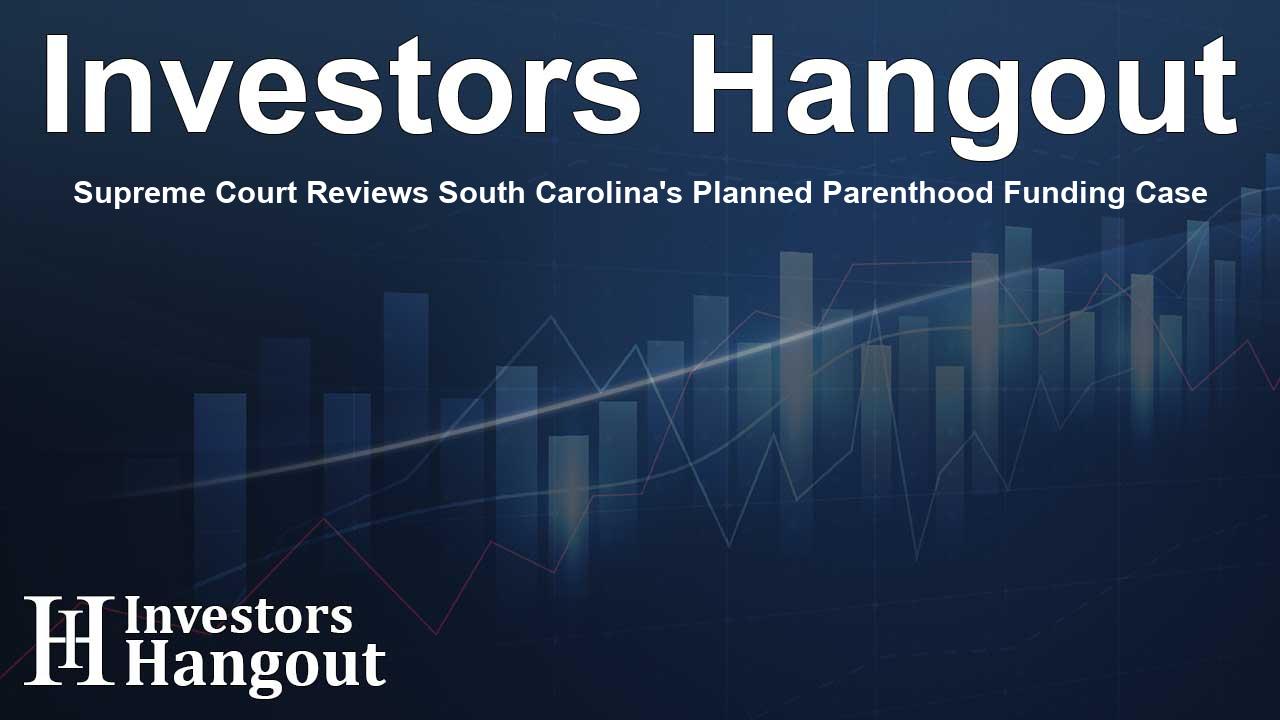Supreme Court Reviews South Carolina's Planned Parenthood Funding Case

Supreme Court's Upcoming Review on Funding Cut
The U.S. Supreme Court has chosen to hear a significant case concerning South Carolina's effort to revoke public funding for Planned Parenthood, a decision that may influence conservative states aiming to limit government financial support for reproductive healthcare services.
Background on the Case
This legal battle stems from South Carolina's appeal against an earlier ruling that prevents the state from halting funding to Planned Parenthood South Atlantic, the organization’s regional branch, primarily aimed at Medicaid beneficiaries. This court’s review signals a pivotal moment in the ongoing discourse surrounding reproductive rights and healthcare accessibility.
Implications for Medicaid and Healthcare Providers
The outcome of this case is crucial as it could affect funding policies not only in South Carolina but potentially set a precedent for other states with similar legislative agendas. By scrutinizing the intersection of Medicaid funding and abortion services, the court may redefine how reproductive health services are funded across the nation.
Broader Impact on Reproductive Rights
The Supreme Court's decision could embolden other conservative states striving to impose restrictions on reproductive healthcare funding, thereby influencing the future of reproductive rights. As the legal landscape remains contentious, many advocates are closely monitoring how this case will unfold.
Current Landscape and Future Considerations
With the Supreme Court poised to make a ruling, the implications extend far beyond South Carolina. A decision in favor of the state could unravel years of judicial precedent that upholds access to reproductive health services for millions of women across the U.S. By potentially limiting Medicaid funding, this case may alter the resource availability for many who rely on these essential services.
Frequently Asked Questions
What is the main focus of this Supreme Court case?
The case examines South Carolina's attempt to withdraw public funding for Planned Parenthood, particularly in relation to Medicaid.
How could this decision impact other states?
If the court sides with South Carolina, it may encourage similar funding cuts in other conservative states throughout the country.
What are the potential outcomes of this case?
The court could either uphold the lower court's decision protecting funding or allow South Carolina to proceed with its funding cuts.
Why is this case significant for reproductive rights?
This case could shape future policies concerning state funding for reproductive health services, affecting many women's access to care.
When is the Supreme Court expected to make a decision?
The timeline for a decision is yet to be announced, but it is anticipated during the upcoming court term.
About Investors Hangout
Investors Hangout is a leading online stock forum for financial discussion and learning, offering a wide range of free tools and resources. It draws in traders of all levels, who exchange market knowledge, investigate trading tactics, and keep an eye on industry developments in real time. Featuring financial articles, stock message boards, quotes, charts, company profiles, and live news updates. Through cooperative learning and a wealth of informational resources, it helps users from novices creating their first portfolios to experts honing their techniques. Join Investors Hangout today: https://investorshangout.com/
Disclaimer: The content of this article is solely for general informational purposes only; it does not represent legal, financial, or investment advice. Investors Hangout does not offer financial advice; the author is not a licensed financial advisor. Consult a qualified advisor before making any financial or investment decisions based on this article. The author's interpretation of publicly available data shapes the opinions presented here; as a result, they should not be taken as advice to purchase, sell, or hold any securities mentioned or any other investments. The author does not guarantee the accuracy, completeness, or timeliness of any material, providing it "as is." Information and market conditions may change; past performance is not indicative of future outcomes. If any of the material offered here is inaccurate, please contact us for corrections.